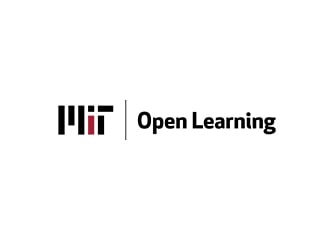Ask MIT Experts: How Can You Get the Most Out of Your Online Course
More professionals than ever are looking into online courses, including ones previously relegated to traditional classroom settings. Conventional wisdom once said that human skills like leadership and negotiation could not be learned online. However, this may no longer be the case. The Curve interviewed two online education experts at MIT about how educators and learners can improve the quality and efficacy of their next online course.
For aspiring and active online learners, understanding how educators build their online courses is critical. In the video below, MIT Professor and co-founder of the inter-university Program on Negotiation at Harvard Law School Lawrence Susskind discusses the differences between in-person and online teaching, and how this impacts his online negotiation course:
So, how can you apply what experts know about teaching online to optimize your own online learning experience? With insights from MIT experts, we discuss the four key elements to look for in your next online course and the actions you can take to get the most out of it.
1. Interaction
Takeaway: Doing is learning. The more you interact with your peers, the professor, and material, the more engaged you will be with your own learning.
Digital learning opens up the possibilities of the kinds of interactive experiences learners can have. “I have designed three or four ways that learners in a cohort interact,” said Susskind of his online course, Negotiating to Create Value: The Mutual Gains Approach. “The skills I'm trying to help them learn require interaction between students, professor, and material.”
Interacting with your online course or program can take many different forms. Meghan Perdue -- Digital Learning Fellow for MIT’s School of Humanities, Arts & Social Sciences -- researches the science of online learning, as well as best practices for online learning and MITx Massive Open Online Courses (MOOCs). In her research, she has discovered that discussion and feedback are two critical avenues for meaningful online interaction:
Discussion
When discussing her research, Perdue highlighted the importance of providing “meaningful and respectful avenues of engagement that the learners have ownership over. Discussion forums that are specifically created as open spaces, and that offer up prompts that colleagues can discuss, are crucial components of online courses.” Perdue continued, “They create engagement and are really important to the learners.”
Peer Feedback & Coaching
Feedback is important in online settings, but according to Perdue, you have to know how to give it. “You don't want somebody to give you feedback that's not relevant, not on point. In order for learners to give each other useful feedback, they need a clear rubric that they can apply to judge each other’s work.”
In Susskind’s online negotiation course, the students learn how to give each other feedback by watching an ideal scenario. ”After my students do their role-play assignment,” he said, “they watch two of my doctoral students do exactly the same negotiation in an exemplary way. I react to what they say and do, and I coach them and give them advice. Then I ask the students to give each other feedback using the same template.”
2. Practice
Takeaway: Use every opportunity to apply what you are learning.
MIT’s motto, mens et manus, translates from Latin to mind and hand. It reflects the ideals of MIT’s founders who promoted education for practical application.
According to Susskind, “You cannot teach someone how to negotiate by just giving lectures. They have to go through the doing and practicing. Negotiation is clinical education, and you could no more teach someone how to do medicine by just giving lectures.” Susskind's virtual negotiation simulations, like the "Island Harbor Simulation" (below) let students learn by role-playing different hypothetical situations.
3. Mutual respect between PEERS, instructor, and students
Takeaway: Engage with your teachers and your peers as much as possible. Assume your teachers are there to support and guide you.
Perdue’s research on engagement points to the idea that “the more respectful the instructor is of the students, their agency, curiosity, and desire to participate intellectually increases. It's about this sense of identity of cultivating a relationship where the instructor is saying, I recognize that you are in this class because you choose to be.”
Respectful engagement is critical for learners who pair up to participate in a virtual simulations as part of Susskind’s online negotiation course. When participating in the simulation, the partners must trust each other to play the role realistically based on the information provided, and then to give each other meaningful feedback. This process requires a great deal of mutual respect, as each participant must assume the other is trying their best during the role playing exercise.
4. Reflection
Takeaway: Learning requires a growth mindset, and the best way to grow is discovering the opportunities to change or adjust your approach.
Susskind asks his negotiation students to recognize how they initially believe they would handle the assigned scenario – their personal theory of practice – and then reflect on what happened after the simulation is complete. The next time, they have to try something purposefully different, reflect on that, and over time transform their personal theory of practice.
“When you reflect, and get help reflecting, you confront your personal theory of practice,” said Susskind. “The goal is to have a good place to start when thrown into an actual situation.”
The online learning tips above could improve the way you learn in your next course. Online educational resources are an essential tool for workforce training, and continuous learning is now a requirement for many modern professionals.
As you continue your own journey of professional development, prioritizing the four key elements above -- interaction, practice, mutual respect, and reflection -- will improve your learning outcomes and positively impact your professional growth.



